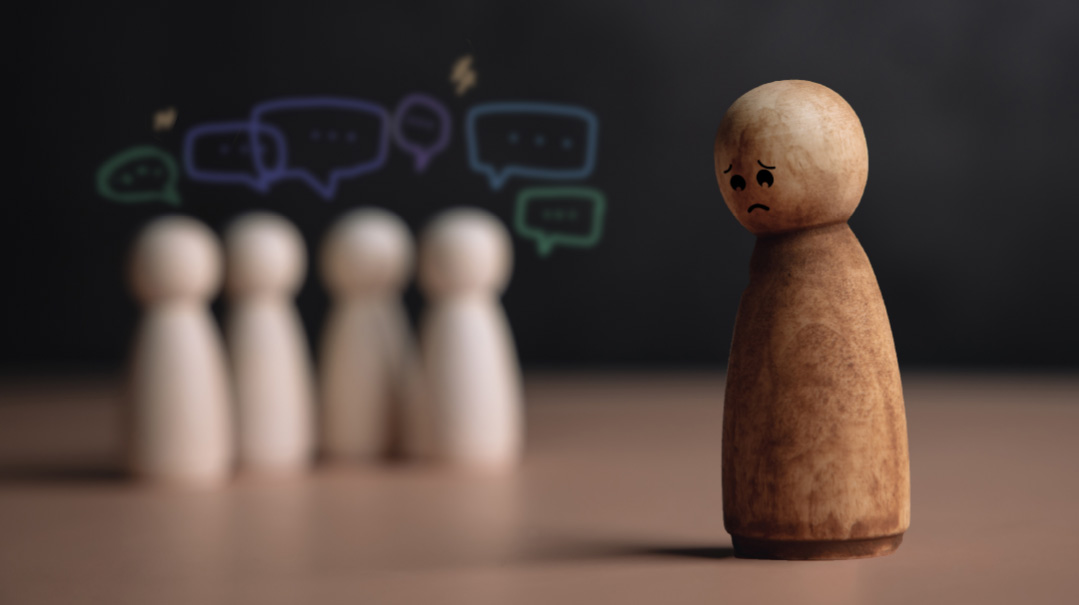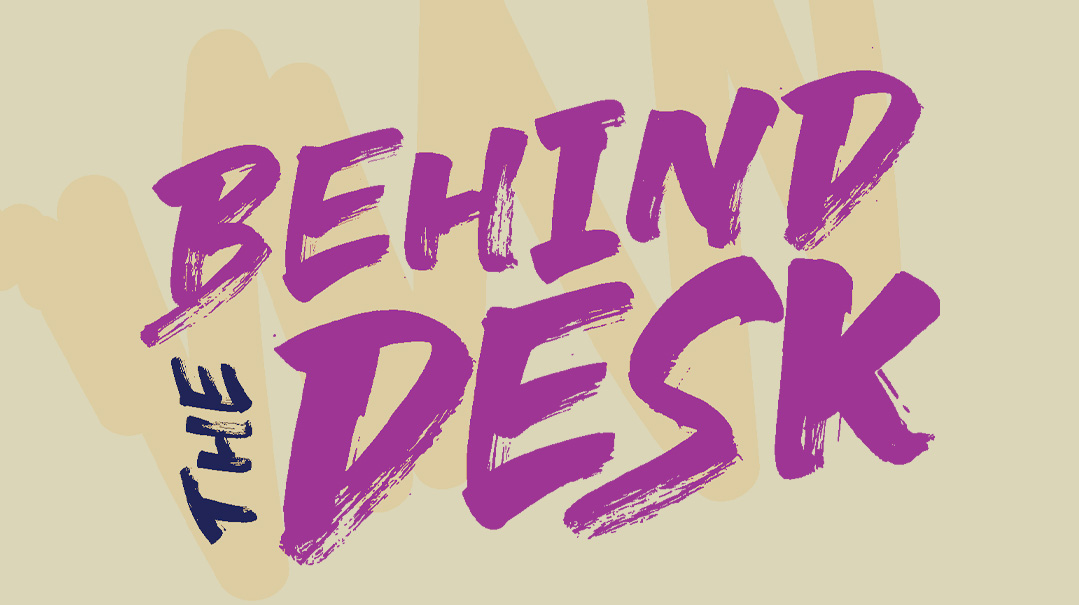A New Lease on Life
| October 6, 2022Being lost is a scary experience, but feeling lost and lonely in a crowd is so much scarier

Miri’s Story
IN my wildest dreams I could never have imagined what a nightmare my high school experience would turn into.
The summer before high school was a happy time in my life. I shopped for uniforms and went to several stores until I found the perfect shoes. I found a chic backpack that I filled with fresh pens and notebooks. Everything was perfectly set. I had so many hopes and dreams for high school. If I had slight butterflies in my stomach, it was because I was nervous in a good way. I was excited, anticipating a new experience. Throughout elementary school, I had been studious and well-liked by my classmates and teachers. Though I wasn’t attending high school with many girls that I knew, I assumed I would breeze right in and find my social standing quickly.
But it just didn’t happen.
From the first day of school, I felt lost and alone, overwhelmed and confused. Each recess bell brought feelings of panic. Who would I sit with? Where would I go? How could I possibly blend into the cliques of happily chattering girls?
I’m naturally a very positive person, so I tried to brush off my own fears.
It’s still the beginning of the year. It takes time to get acclimated. There are other girls straggling too. I’m not the only one. I just have to give it some time.
Unfortunately, time did not help. If anything, time made it even worse. The situation deteriorated as the months went by.
There was one particular girl in my class, Tova, who took a very strong dislike to me. I did very well scholastically; my straight A’s came easy. I was a pretty girl, with beautiful blond hair, a sweet personality, and an easy smile. I also had a nice wardrobe and all the right accessories, down to my designer jacket. Tova had a very hard time scholastically and her family was struggling financially; she didn’t have many of the things that I had. In retrospect, I realize that she felt insecure and jealous of me. There was also some emotional upheaval in her own life at the time — I’m not exactly sure what it was — but I quickly became her target.
Being lost is a scary experience, but feeling lost and lonely in a crowd is so much scarier. Exclusion is one of the most painful things a teenage girl can experience.
I walked into school each day alone. I walked down the hall alone. I walked into my classroom alone. No one glanced at me, no one said good morning. Nothing. It was like I didn’t exist.
There was one morning when I suddenly heard my name, and my heart quickened. Hey, they were finally talking to me! But a second later I realized that no, they weren’t talking to me, they were talking about me.
I was wearing a new Michelle watch that my parents had bought me for Chanukah.
“Hey, did you see Miri’s new watch?” Tova said loudly. “It’s fake! She got it straight from China!”
My face reddened. That was a ridiculous lie! But what could I do? I heard ten girls snickering behind me. I pulled my sweater over my watch and quickly left the room. I made a beeline for the bathroom and sat there crying for some time until I finally worked up the courage to return to my classroom.
By then class had begun, and my teacher gave me a very stern look as I walked in late. There was more smirking around the classroom, but this time it was more discreet because a teacher was in the room. I was sent to the office for a late note, and I trudged miserably down the hall. It felt like the entire world was against me!
Another very painful memory stands out in my mind.
Tova was a bit of a neat freak. I was just a regular teen — not that neat, but not that messy either. Sometimes there was a bit of clutter in my locker, on my desk or in my briefcase. Just normal teen stuff.
One day Tova decided to pull the most disgusting prank to frame me as the “class slob” who was turning the classroom into a wreck.
She began by loudly declaring to our classmates what a wreck our classroom was and that she would tidy everything during recess one day and finally make some order. But what she actually did was collect all the garbage from around the classroom — even from the garbage can — and dump all of it onto my desk, under my desk and around my desk. So when I walked into the classroom after recess everything was spic and span aside from my desk, which was a disaster zone. Other girls followed behind me and gasped.
“Miri,” Tova said in a high pitched, mocking voice. “Look how you ruined our classroom! It’s absolutely disgusting how you keep your desk.”
The others followed her cue and began attacking me. “Yeah, it’s crazy how you ruin everything with your horrible messes!”
“It’s really rough to have such a slob around here!” Tova huffed as she picked up a stray snack bag that had fluttered from my desk. “Totally impossible. I don’t know what we’re going to do!”
It was horrible. It was a lie. And it was a new level of nastiness. But how could I defend myself against so many strong personalities?
Tova was strong and confident. There was something magnetic about her personality. She was just popular enough to pull together a group to exclude me, and it was torturous. Many of her friends, girls who also had strong, opinionated personalities, got dragged in. Perhaps on their own they would have been nice to me, but they just couldn’t stand up to Tova. Many of the other, quieter girls, didn’t have the courage to stand up to Tova either, so the rest of the class stayed out of it, on the sidelines. No one stood up to defend me that day, or any day.
Another episode that stands out was the time Tova called me at home. It was the night before a difficult Chumash final. My hands began shaking when I noticed her number on the caller ID. I ignored it. My mom answered.
“Miri, sweetie, phone call!” my mom called out, totally oblivious to the maelstrom of emotions raging through my heart. When she handed me the cordless phone, I was out of sorts and mumbled hello.
Tova and her gang were studying together, and of course they hadn’t invited me to join them.
They had officially called to ask me a perplexing question about one of the pesukim — I was a studious, smart girl with perfect notes — but they quickly started bragging about the fun they were having. They had just come home from the pizza store and were hoping to study at someone’s pool. I heard giggling in the background and then the phone went dead.
I must have looked ill because my mom was very worried. “What happened?”
“Nothing,” I mumbled as I went to my room.
The next day, that same perplexing question came up. Everyone began discussing it, trying to remember what the teacher had said the correct explanation was, but no one remembered. It was minutes before the test would begin and everyone was desperate.
This was finally my chance to shine! It was my big break! I knew the explanation perfectly.
I tried to assert myself. I began sharing the explanation as simply and clearly as I could.
But my classmates just ignored me. They were desperate to get the answer, but not from me. I tried several more times, but they totally ignored me. No one even looked in my direction.
While most high school girls counted down to the extracurricular activities, trips, and chagigahs, I hated them. That was the most difficult part of high school. I absolutely hated going on trips because I had no one to sit with and felt so alone on the bus. It was so painful to watch the girls around me doubling and even tripling up in the seats while I sat alone, desperate for a seat mate. I often feigned sickness before the chagigahs and trips; I just couldn’t bear the terrible loneliness.
One year before midwinter vacation, I davened very hard for a blizzard. I had no one to go out with and nothing to do — it was demoralizing. I remember on the first morning of vacation I woke up to a blizzard and I smiled. The world was so beautiful and serene, covered in a foot of perfect, fluffy white snow. No one was going anywhere. I felt a hug from Hashem. I was so miserably alone in school, but He never left me.
I cried often during high school. There were days when I came home from school and went straight to my room, collapsed into bed, and shook with tears. I went late to school as often as possible (to avoid the downtime before class) and tried to take off as many days as possible.
In retrospect, I realize that I should have confided in someone. I should have reached out for help. But it was so embarrassing! I had so many friends in elementary school (many of whom I kept up with). I also had friends on my block. I was such a normal, run-of-the-mill girl! It was so hard to walk over to someone and say, “Um… so all of the sudden this weird thing happened. I’ve turned into the school outcast that my entire class hates.”
I was just too humiliated to express what was going on. I had turned from a popular social butterfly into a nobody. It was just so mortifying. More than that, I didn’t think it would help. If I confided in someone, then what? If I reached out for help, Tova and her gang would just turn nastier (if that was even possible).
My parents did pick up on my misery, and they were concerned. They would gently ask me about it. What was going on? Why didn’t I talk on the phone at night? Why didn’t I want to hang out with anyone from school?
I just shrugged off their questions. At that point, throughout my high school years, I wasn’t that close with my parents, though over the years, I’ve become much closer to them.
If I was absent, no one even cared. No one even noticed and no one called. It was as if I was not a person. I wasn’t even worth a hello. And what about my teachers? I sort of fell through the cracks. I was a “no (obvious) issues girl” from a great family. I was a cute, put-together, straight A student, so I just floated through the system, all the while davening for it to be over.
There was one teacher, Mrs. Morgenstern*, who, though she really didn’t grasp the extent of the bullying, picked up on parts of the situation. She was young, new, and very well-meaning. She was eager to help me, but unfortunately she didn’t handle the difficult and very complex situation correctly. It was a situation that required professional input, but she handled it on her own.
Mrs. Morgenstern asked to spend some time with me and took me out one evening. As we went for a drive together, I let my guard down and confided in her a bit. I shared some of my struggles with her. At last there was someone who wanted to help me!
My relief was short-lived. Mrs. Morgenstern then went back to my classmates and shared what I had told her. Not only didn’t this help the situation, but it made it a lot worse. The girls now had more to tease me about, and they were annoyed that I “tattled” on them.
From then on, I resolved never to share my plight again. I would never again confide in a teacher. The only One I turned to was Hashem. I cried to Him. And I anxiously waited — literally counted down the days — until my torturous school experience would end. I begged Hashem to help me and give me a new lease in life.
And He did, in the most miraculous, glorious way.
By the time I graduated from high school, I was a crushed, shattered person. My self-esteem was below zero. I had been made fun of behind my back, I had been ridiculed to my face, and I had been painfully, intentionally ignored.
At that point I couldn’t believe that anyone in the world would actually like me for who I was.
I decided to attend a local night seminary and look for an office job to fill my days. I landed a dead-end office job doing data entry and other tedious busywork.
Things did not work out at that job. The atmosphere was tense, my supervisor was uptight, and I hated the boring work. I was a bright and creative girl and felt completely under stimulated. Three months into the job, I was fired. At that point my self-esteem plunged even lower. I finally finished my torturous high school experience and I couldn’t even hold down a dumb office job?
But this was all part of Hashem’s plan. Getting fired from that dead end job turned into the biggest brachah of my life. At that point Hashem picked me up and He took such amazing care of me. A mutual coworker had taken a liking to me and introduced me to someone else. One thing led to another and for some incredible reason, orchestrated straight from Above, I was offered an incredible, high paying, prestigious job. I flourished there in an astonishing way and quickly rose through the ranks in the company. Within two years, I turned into a well-respected professional. My opinions were very important.
I came out of high school with no friends, but I wasn’t doomed for life. Through my night seminary and professional life, I have made incredible friendships that I treasure. My phone has finally perked up, ringing all the time. I have a social life again. My new friends think the world of me.
Looking back at the shattered, torn girl from high school, I just shake my head. Was that really me? How was I that person who was so bullied?
Now that I’m in such a good place, I look back at my high school experience with a different perspective. Pain has a purpose. It was from Hashem, and I can see how it has turned me into a different person. I am kinder and more sensitive. I went through a very difficult life challenge, which has helped me forge a very close relationship with Hashem. And that is priceless. My motto in life is “Al tiftichu bindivim.” Don’t rely on other people. These days I automatically turn to Hashem for everything I need.
High school is important, and when we’re going through it, it seems like it is our whole life. But in reality, it is only a small segment of our life. And I thank Hashem every day for my new lease on life.
*Name changed.
When you see something, say something!
After her very difficult years in high school, Miri views the world differently. She’s become very sensitive and in tune to lonely people, and is constantly looking out for girls and women who can use a friend, a smile, or a friendly chat. So when you see someone lonely… say something to them! But never turn those lonely girls into objects of pity.
As Miri says, “When I walk into a wedding, or any social gathering, I automatically scan the room for the lonely, awkward person and I try to get to know them. But not in a, ‘You’re a big nebach so this is my chesed for the day’ kind of way. No one wants to be turned into the object of your pity!
“Rather, I reach out to her because she is a person, and every person has so much to offer and so much to share. Just open your eyes and your heart and you may even be the one to gain so much from the encounter. You may even gain a new friend.
“I recently noticed a few young girls playing on my block. One girl was on the sidelines; it seemed like she was excluded and very sad. My heart automatically went out to her. I knew exactly how she felt.
So I walked over to the girl and genuinely complimented her on her outfit. (I really did like it. I try to always give genuine compliments, not just compliments out of pity.) I also asked her to help me carry in several bags from my car, and then we schmoozed for a bit.
“The girl’s face lit up and her whole demeanor changed.
“I watched her walk away with a bounce in her step; I knew she felt better about herself. And the best part was that I felt even better.”
Bullying 101: Q & A with Tali Arieff, LCSW
How can I tell if I am being bullied? When does it cross the line from regular bickering, or a bit of snobbiness, into bullying?
I’ll never forget, years back when I worked as a school guidance counselor, the day two moms of classmates came to meet with me, each earnestly trying to convince me that their poor daughter was a victim and the other kid was a mean, nasty kid who was bullying their child. I managed to keep a straight face and spent the session explaining that when two kids are snobbing each other out, having social politics, and generally being mean, they are called “in a fight.” Neither is the victim, neither is the bully. They need to learn to get along!
Unfortunately, it’s become common for kids and their parents to consider every nasty, exclusionary, or just plain mean kid a bully — making them feel unnecessarily like victims.
What are signs of true bullying?
True bullying is when there is a power difference and the victim is truly helpless. The bully can be powerful because of her social standing, her physical superiority (although physical bullying is thankfully rare in our Bais Yaakov system), or because she gets a bunch of kids or adults on her side. So if one kid snobs another out, and gets half the class to snicker and jeer when she taunts and teases, that’s bullying. If one kid uses her physical or social strength to threaten and control another kid who is voiceless and defenseless, that’s bullying. If one kid portrays another to the teachers as problematic, spreads rumors, and makes the victim seem bad in a way that makes her unable defend herself, that’s bullying. If one kid gets a large group to specifically and intentionally exclude one girl, that’s bullying.
Bullying typically also has “bystanders,” or people who watch and either join or passively allow the bullying. This empowers the bully and makes the victim truly feel helpless.
What should I do if I’m being bullied? What if I’m scared or embarrassed to reach out for help?
The good news is that you as a victim are not actually as helpless as you feel. Here’s a crucial secret to know: The bully only has power if you care about what she does. She thrives on intimidating you and making you feel small. If you can muster up the strength to show that you couldn’t care less what she says or does, she automatically loses her power over you. Eventually the bully will usually give up.
Here are some ways to show that you don’t care what the bully does (remember, even if you do care very much, the key is to not let your pain and fear show):
IGNORE: Don’t answer the bully. Move on, find another place to be. Act like it’s not happening.
DO NOT run away or act scared.
DO NOT let sad emotions show on your face.
SHOW YOU’RE ABOVE HER BEHAVIOR: Roll your eyes, continue talking as if nothing happened, make a face that shows you think she’s immature, use humor to show you’re chilled.
TALK BACK: Use a sharp comeback to show that you’re not intimidated.
OPPOSITE EFFECT: Act the opposite of how she expects, such as thanking her sweetly for her insult to your new shoes.
GET SUPPORT: Have teachers or peers back you up. Act cool and unconcerned when the bully starts up, and instead let your support person speak up for you, or instead walk away with your support person. If this isn’t enough, speak to a therapist or get someone involved who can help.
What do I do if I notice a friend or another girl in my grade being bullied? What If I don’t feel like I have the courage to go against the tide and stand up to the others?
If a girl is being bullied, it’s critical that peers stand up for her. Remember Kamtza and Bar Kamtza? If someone had stood up for the victim there, the Churban would not have come about. If you can’t do so by yourself, speak to friends and form a group committed to helping the victim. You can do this directly by standing up to the bully and telling her to stop being mean. Or if that’s too hard, simply include and be nice to the victim yourselves. The more friends she has, the less powerless she is, and the less likely the bully is to keep picking on her. If you totally don’t feel up to helping, make sure to speak to a teacher or parent who can get involved.
Is bullying common in high school? Why would a girl turn into a bully?
I have no research or statistics, but in my own experience as a therapist and teacher of close to two decades, I’d say that social misery is common — feeling like you don’t have friends, feeling snobbed out or excluded, or having a nasty girl who makes your life difficult. But true bullying, where someone is intentionally and deliberately tormenting a classmate, is not common in our high schools, although it does unfortunately happen. If an older teen is still bullying, I’d be concerned that there are underlying personality issues or some other personal crisis or mental health challenge.
Why, in some cases, do bullies get away with it without the teachers picking up on things?
Bullies know how to manipulate social conditions in their favor. That’s what makes them powerful as bullies. They use their social savvy to make sure teachers don’t realize what’s going on.
What chizuk would you offer to a girl that is struggling socially in high school?
Unfortunately, struggling socially is quite common. It’s extremely painful and hard, but not at all unusual. Work on building your own inner world and sense of self, try to develop a few close friends even if they’re outside of school, and develop interests and hobbies outside of social contexts, like volunteering. Remember that you will have many years of friendship to enjoy away from the social pressure of high school.
What would you say to a girl who is being bullied?
Bullying is an emotionally toxic and traumatic experience. It’s something that needs to be stopped ASAP. If you can use the skills outlined above to get back your power, that’s great. But if the bullying keeps going, it’s critical to speak to adults, get professional help, and even consider switching schools. It’s not something that can be endured long-term without significant emotional harm, and it’s an emergency situation.
Any final tips for teens?
Remember, how you see yourself is how others see you. If you act confident, if you handle social challenges calmly and maturely, if you hold onto your self-esteem even in tough situations, others will respect and like you as well. Fake it if you have to. And remember, every one of us, without exception, is a highly gifted and flawed human being with amazing strengths and shortcomings and defects. That’s by design. Malachim are perfect; humans are designed to struggle. Accept yourself with all your parts, and others will accept you as well!
Tali Arieff, LCSW RPT maintains a private practice for kids, teens, and young adults in Brooklyn, NY.
(Originally featured in Teen Pages, Issue 931)
Oops! We could not locate your form.







